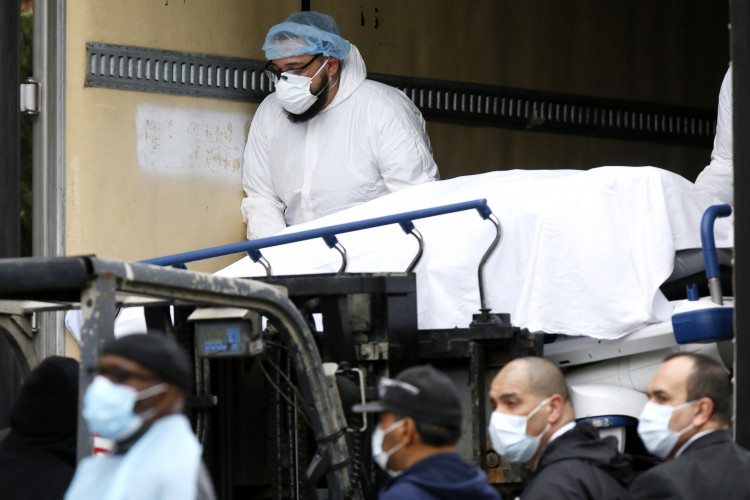The inability of the United States to quickly import critical medical supplies and equipment needed to fight COVID-19 from other countries can also be traced to the tariffs imposed by President Donald Trump on China, the European Union and Mexico since 2018.
These punitive tariffs, which are part of Trump's isolationist and protectionist agenda had the twin effect of making these products more expensive to import -- and harder to come by -- while discouraging countries producing these items (such as Mexico) from investing more in industries made uncompetitive by the tariffs.
Trump's tariffs have "further undermined U.S. preparedness and response to the outbreak," asserted Yanzhong Huang, a senior fellow for global health at the Council on Foreign Relations (CFR). Huang also told CNBC that without Trump's tariffs, the U.S. will be in "a better position in this bidding game" aginst a large number of countries fighting to import critical medical products from China.
About $3.3 billion in imports of critical healthcare products still have to pay 7.5% tariffs. More than $1.1 billion worth of imports that might treat COVID-19 are still subject to Trump's 25% tariffs even after Trump cut and suspended some tariffs temporarily, according to data from the Peterson Institute for International Economics (PIIE), a non-partisan, non-profit think tank focused on international economics based in Washington, D.C.
"The administration's tariffs on Chinese medical products may contribute to shortages and higher costs of vital equipment at a time of nationwide health crisis," wrote PIIE senior fellow Chad Bown in a report dated March 13.
In an earlier report, PIIE warned Trump's trade war with China could "cripple" the U.S. fight against the COVID-19 pandemic.
Brown said Trump's tariff war has forced China to sell many of its medical products to other countries instead of to the U.S. Some of these products include personal protective equipment (PPE) for doctors and nurses and equipment to monitor patients.
PIIE data shows that some $100 billion in intermediate inputs from China still face 25% tariffs, raising costs of parts and components for U.S. medical product manufacturers.
Trump's move on April 3 that banned U.S. exports of N-95 respirators, masks and other PPEs to the rest of the world by invoking the Defense Production Act will "invite retaliations" but also "undermine the capacity of other countries in fighting COVID-19? as they are denied desperately needed PPEs said Huang.
"This is a global pandemic. Our ultimate success in containing the spread of COVID-19 is to a large extent dependent upon how effective other countries are dealing with the outbreak. We cannot claim victory unless other countries are virus-free."
Adding to U.S. woes is the tightening of restrictions on exports of medical supplies since the start of the year by more than 50 countries, including France and South Korea. This painful move further limits foreign sources of supply of medical equipment for the U.S., said a study by Global Trade Alert (GTA) in collaboration with the University of St. Gallen in Switzerland.
Also, only seven countries account for 70% of the exports of mechanical ventilators, which are indispensable tools for those seriously ill from COVID-19. Robert Zoellick, former president of the World Bank, said if even one of these seven countries banned exports, "prices could increase by up to 10%."
GTA is a trade policy monitoring initiative that's become a widely-used input for analysis and decision-making by firms, industry associations, journalists, researchers, international organizations, and governments.






